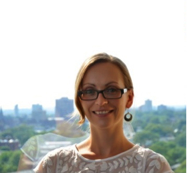Subscribe to our newsletter
Coffee Time Science: Benefiting Communities with Clinical Studies
How your research study can also benefit its participants
As we come out of lab meeting, we head down to the coffee machine for our next instalment of caffeine. Today, in celebration of International Women’s Day, we discussed an HIV study currently ongoing in South Africa called FRESH – Females Rising through Empowerment, Support, and Health. “This is why I love science” Katja beams at me. “I feel like FRESH has really made a significant difference in these women’s lives” I couldn’t agree more – watching the video of one of the women recounting her experience was very uplifting and moving.
The concept is simple and effective. Researchers enrol sexually active HIV negative women in this study where they come into clinic for regular visits to test for HIV, have blood samples collected and small tissue samples taken. The idea is to have longitudinal samples of HIV negative women to detect and study those who acquire HIV from the earliest point of infection (66% of women are HIV positive by the age of 23 in that specific town). For those women who get infected, early treatment and counselling are offered to help them cope with the emotional distress, and to stay relatively healthy by suppressing the virus, which in turn helps to reduce the risk of infecting others. But the novel thing about this study is that the women get something in return. Every week when they come into clinic for their blood draw, the participants also receive job skills training, ranging from basic computer skills – the woman narrating the video had never touched a computer before in her life – to empowerment, life-skills and job readiness sessions.
What I personally love about this study is that, in addition to providing education and potential job prospects to these women, it also addresses more personal issues these women have to deal with, such as low self-esteem, lack of positive role models, and poor access to social services, which correlate with higher-risk behavior. This strikes a nerve with me. We need more female role models. Not just in science, but in most areas of public and private life; seeing strong women succeed – especially against the odds.
“Did you read about the Elsevier Foundation Awards for Women Scientists in the Developing World the other day?” Narges and Katja shake their heads. “There is an article online about the personal experiences of the 5 winners this year, it’s pretty amazing”. The unifying theme is escaping from poverty, having a positive role model or encouragement from a mentor (male or female), and being a role model and mentor to young women themselves. I smile thinking about the article: On days when I read about things like this, I feel like we are taking steps in the right direction.
 About me: My name is Christine, and I am currently working as a research specialist at the Ragon Institute of MGH, MIT and Harvard in Cambridge, Massachusetts. After my undergraduate studies in Oxford, I moved to London for my PhD and first postdoc. After 7 years in this magnificent city, I was ready for an adventure and decided to go to Boston for 2 years for a second postdoc. As love and science made me swap rainy London for alternately deep-frozen or tropical Boston, 2 years turned into 5 (and counting), and I decided to deviate from the traditional academic trajectory to work as a staff scientist (the rather fancy title of my position is research specialist). Most days, I sit with post-docs and other staff scientists over lunch or coffee, and discussion topics range from the inane to career goals and options, our research, new techniques and technology and the like. I would like to share some of those topics with you in this blog. Want to join in? Grab yourself a cup of your favorite caffeinated beverage, read along, and leave comments. You can read my other blog posts here.
About me: My name is Christine, and I am currently working as a research specialist at the Ragon Institute of MGH, MIT and Harvard in Cambridge, Massachusetts. After my undergraduate studies in Oxford, I moved to London for my PhD and first postdoc. After 7 years in this magnificent city, I was ready for an adventure and decided to go to Boston for 2 years for a second postdoc. As love and science made me swap rainy London for alternately deep-frozen or tropical Boston, 2 years turned into 5 (and counting), and I decided to deviate from the traditional academic trajectory to work as a staff scientist (the rather fancy title of my position is research specialist). Most days, I sit with post-docs and other staff scientists over lunch or coffee, and discussion topics range from the inane to career goals and options, our research, new techniques and technology and the like. I would like to share some of those topics with you in this blog. Want to join in? Grab yourself a cup of your favorite caffeinated beverage, read along, and leave comments. You can read my other blog posts here.
